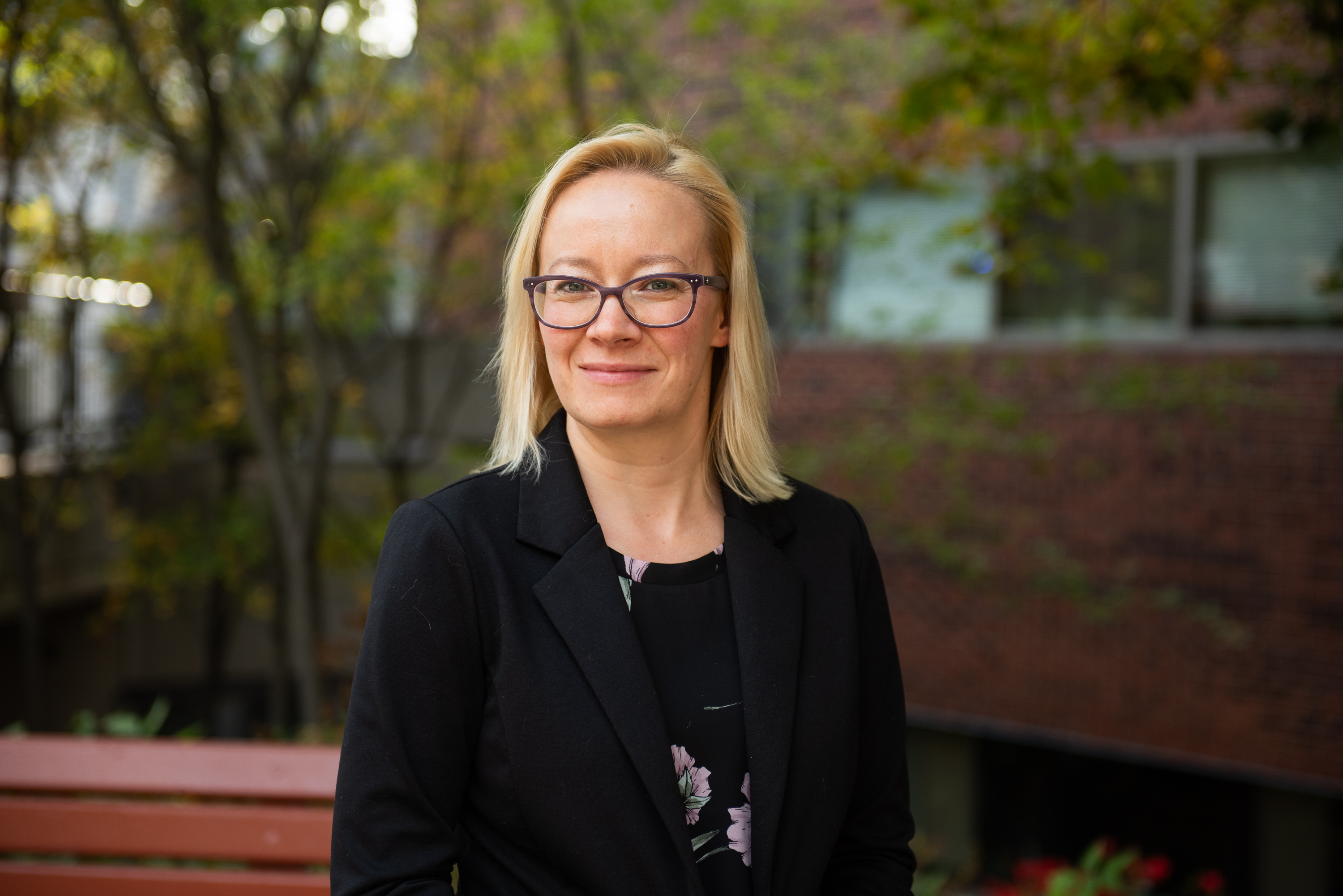
Associate Professor (cross-appointed with Food Science);
|
Degrees
BSc (University of Waterloo)
PhD (University of Ottawa)
Short Bio
Dr. Ronholm obtained her BSc in Microbiology from the University of Waterloo in 2007 and her Doctoral degree in microbiology and immunology from the University of Ottawa in 2013. She completed post-doctoral training at McGill University and at Health Canada. She was hired as an Assistant Professor in the Faculty of Agricultural and Environmental Sciences in 2017. Her interests are primarily in understanding the role of the microbiome in determining susceptibility of individuals (both humans and agricultural animals) to infections.
Awards and Recognitions
- Visiting Fellowship in a Government Lab (2014-2016)
- Deputy Minister’s Award for Excellence in Science (2017)
- World Economic Forum’s Young Scientist (2020)
- Agricultural and Environmental Sciences Award for Teaching Excellence (2020)
Active Affiliations
- Canadian Society of Microbiologists
- American Society for Microbiology
- Senior Editorial Board Member for BMC Microbiology
- Editorial Board Member for Canadian Journal of Microbiology
Research Interests
Unique microbial communities exist in several locations in the bodies of humans and animals. For example, a cow will have extremely different bacterial communities living in their mouths, than in their rumen, or small intestine, or udder. While the composition of a microbial community of a single site (i.e. the udder) varies only a little between individual animals, these small differences can make a big difference in terms of infection susceptibility. My laboratory works to identify these differences! We are attempting to define what a “healthy” microbiome looks like, and what a microbiome that is susceptible to infection looks like. We attempt to define down to the species level which members of the microbiome are protective against different types of infection so that these bacteria can be investigated as potential probiotics – to prevent these types of infection. Our hope is that if we can fortify the microbiome of humans and animals to resist infection we will be able to reduce our reliance on antibiotic usage in the context of production agriculture.
Current Research
Salmonella enterica Interbacterial Antagonism – In the gastrointestinal bacterial pathogens must compete with resident non-pathogenic bacteria. At the molecular level, very little is known about the details of antagonistic interactions between bacterial pathogens and the microbiome. This research program will expand the fundamental knowledge of the interactions that occur between Salmonella enterica and the microbiome. (Funded by NSERC Discovery, FRQNT New Researchers, and CFI-JELF)
Mastitis and the Microbiome – Nothing is known about the composition of the udder microbiome affects a dairy cow’s susceptibility to mastitis infections. Certain microbiomes may be more resistant to infection than others, and this knowledge would be useful in trying to establish a healthy udder microbiome in dairy cattle. We are attempting to compare microbiomes between healthy and diseased cows in the weeks leading up to infection for the purposes of defining a healthy microbiome. (Funded by Dairy Farmers of Canada)
Novel E. coli Mastitis Treatments – In this project we hypothesize that E. coli mastitis is the partial result of a pre-disposing gastrointestinal microbiome composition. To test this hypothesis and possibly develop a new mastitis prophylactic we are attempting to use new CRISPR-Cas systems to edit certain pathotypes of E. coli out of the bovine gastro-intestinal tract. (Funded by a FRQNT Team Research and Equipment grant, Op+Lait New Initiatives, NSERC CREATE, and NOVA Team Research Supplements)
Vitamin B12 and the Microbiome – Milk is an ideal source of vitamin B12. However, vitamin B12 concentrations in milk are highly variable. In this study microbiome we are attempting to define the role of the rumen microbiome in determining the concentration of vitamin B12 in milk. (Funded by Op+Lait, and Novalait)
The Chicken Microbiome Project – This project focuses on understanding the range of bacteria present in the chicken gastrointestinal tract, in healthy birds, for the discovery of novel probiotics. (Funded by McGill Sustainability Systems Initiative, Egg Farmers of Canada, and MAPAQ Innov-Action)
Mechano-Bactericidal Food Packaging Materials – This collaborative project aims to develop novel anti-bacterial food packaging materials based on the presence of mechano-bactericidal nanomaterials. (Funded by the McGill Sustainability Systems Initiative, and New Frontiers in Research Fund)
Courses